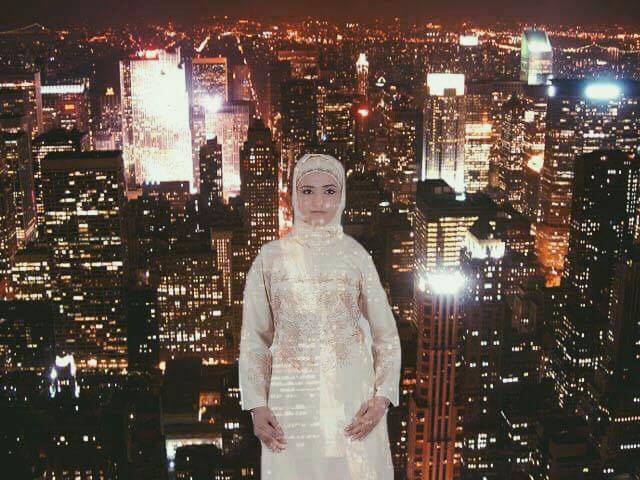
Would she ever be able to break free from it? What would it even mean to break free from it?
The ivory piece of fabric that plagued her freedom
What would it even mean to break free from it? It was not what it was but what it represented – dictation and control.
It flails and flies about in the wind,
It hides my face, my nose, my chin,
I tug and twitch to keep it still,
Its cosy touch and warm embrace,
Upholds my father’s honour and grace,
Although at times it gets too hot,
In blazing heat it helps me not,
But I do not dare to take it off,
Or I will display to the nasty lot,
My darkest fears, my deepest desires,
My joys of thought and ambitious fires,
Will all lay bare for the world to see,
They will catch me…
And I will never be free.
There were holes in it. Tiny notations registering light and sound… her eyes grew accustomed to the light pouring in. The scenic view was blocked by the sieve in front of her eyes.
“It is like the gutter cover in the kitchen,” she thought pulling at it impatiently.
The fluttering fabric around her was wider than her frame. It engulfed her, flowing about her like a circus tent perturbed by an angry wind. She groped and clutched at it attempting to keep it from flying about her. She began her descent down the street.
“Uncle Shahi’s house is not that far, I can still make it there.”
She pondered looking down the street. The light filtering through the fabric was quite minimal. She liked that from the inside, the day around her looked darker and cloudier.
“I will pretend it is about to rain!” she felt elated.
Disregarding the width and length of the cloth, she ran the entire length of the street. Skidding to a halt in front of her uncle’s house, her foot got caught in the hem. She fell. Face down, comically like a circus performer who loses his balance and flails about helplessly.
“This damned thing!” she said, cursing under her breath as she struggled to stand up.
Repeating all curse words that she had overheard from her father, she entered through the gates. All her irritation vanished. The marbled floors, high ceilings, the sound of the television blaring upstairs and the servants bustling about; the very air around this house was happy.
Hurriedly, she took off the burqa. Twice, she got stuck in it. Untangling herself from it, she threw it on the burnished centre table in the living room.
“It is like the sun has come out once more!”
Relief washed over her as she was finally in her happy place at last.
“My child has come to visit me,” a deep voice boomed from the staircase.
A stocky man with deep-set eyes stood at the top of the staircase smiling down at her. Beaming, Zarina ran up the stairs towards him. He embraced her. It was what set him apart from her father, she used to think. He was more… well… human. In the entirety of her life, which was barely eight-years-old, her father had not once even patted her head.
“Maybe he is made of only stone just like the statues we watched on TV here.”
She would maybe touch his arm at night and check. But only if he was in a deep slumber otherwise she would face his wrath.
“Chacha, is baba made of stone?” she voiced her thoughts out loud.
He looked at her puzzled and suddenly threw back his head and laughed loudly. His laughter rang through the walls. She sniggered, infected with his mirth. It was as if he livened up the stone and brick in the walls through his laughter.
“I am sure he is.”
Tapping the wall, he bantered,
“Very much like this wall. Your father is indeed a mound of cold hard stones my child.”
Bringing her down to the sofas, he made her sit. His eyes found the heap of cloth dangling from the centre table onto the ground. It lay there slackened like a deflated parachute. Puzzled, he turned to Zarina,
“Did your mother make you wear this?”
“Father said I was getting old enough to wear it and that if I wanted to come to your house, then I would have to wear this at all costs.”
Uncle Shahi pursed his lips. She thought she saw a shadow of sadness pass over his face. It went as quickly as it came.
“It is okay, chacha. It is a little hard to walk in it but when I open my arms wide, I can pretend I am flying above the clouds!” she said cheerfully.
He smiled at her.
“You know what the best thing about you is, Zarina? Your imagination! Never lose it. It is the weapon that gets you through the hardest of times. Imagine and there shall be no limit to what you can do or feel.”
Days went by and she became used to it. It protected her from dust, rain and prying eyes. Her days of playing out in the streets had passed but the little girl inside her had not. She would look forward to the days her father was not home and she could walk to Uncle Shahi’s house. He let her play in the garden. He saw how she played with the burqa, flying it around her like batman’s cape. What could become a nuisance for girls her age had become a source of fun for her.
“She truly is a flower that grows out of an ugly crack on the pavement. She can find sunshine on the darkest of days. May God be with her.”
He mused while watching her play. Zarina was his only niece. Being childless himself, he loved her very dearly as opposed to her own father who only saw her as a burden and as an unwarranted threat to his honour.
Zarina grew but her burqa still remained too big for her size. Even though it hid the fact that she had surpassed puberty pretty well, her visits to Uncle Shahi’s house had been cut down. She could sneak out only when her father went out of the village for a few days. Her mother would whisper warnings at her as if her voice could carry over all the way to her stern husband if she dared to raise it.
So deeply etched are these fears in the minds of our women. As long as they live, they serve in fear until the sweet release of death sets them free. Zarina’s mother was the same. A middle-aged woman with no sons, a wife to a stern man and his fowl tongue; she tried her level best to protect her only daughter. If only he had taken after his older brother, Zarina’s uncle, she often mused. He had spent years abroad.
“That probably changed him. I heard they let women out without headscarves or even dupattas!”
Shuddering at this unthinkable premise, she resumed dusting the furniture.
Many days had passed since Uncle Shahi had called for her. Zarina yearned to step outside the house for a breath of fresh air.
“Fresh air,” she snorted thinking of the burqa wrapped around her face, her nostrils filled with the rich smell of washing powder.
But without it she couldn’t dream of even stepping one foot out the door. She had learnt the art of compromise, to repress her desires and find happiness even in the discomforts that came her way. The burqa was not merely a piece of clothing to her. It was her reprieve from getting identified. She could assume any role beneath it. She could be ‘superwoman’ or an angel descending from the clouds or a bird flapping its wings in the air. She could be a fairy flying above meadows and mountains to break free. So Zarina lived on. In the high walls of her house and within the silken confines of her burqa, she lived on. Until one day, when her father arranged her marriage.
Uncle Shahi had come over with other relatives. The proposal came at his behest. He did not have a hard time convincing his brother who was also an exasperated father of a daughter whom he wished to give away in marriage. Everything was settled. Zarina was informed by her mother. Heart beating in nervous anticipation, she had asked if she would be leaving the village.
“Yes. He lives in the big city. You can finally visit all the places you’ve heard of from Uncle Shahi,” her mother chirped happily.
Zarina felt as if her mother’s voice was coming from afar. She felt exhilarated and scared at the same time. The weeks flew past as the entire household became festive and busy. It was on the day before her wedding that Uncle Shahi came to visit her.
“My child. I wish I could see you running down the street once more. You grew up so fast and now you will leave. My wish is for you to be extremely happy. I leave you with one piece of advice though. Adaptability is the key to happiness. Nobody knows it more than you my child. You must always remember that living creatures that do not adapt are doomed for obliteration. Everything will fall in place if you adapt.”
She looked at him, pensive. Her young mind did not register the depth of these words, yet she was touched by the warmth in his voice. He left helped by servants, leaving her amidst mixed feelings. On the time of her rukhsati, she sobbed away at his shoulder watching her own father stand behind them. He glanced their way, disapprovingly at the display of affection. She pulled herself together, hugging her mother. Their sweet rapport was interrupted by her father urging them to hurry up. He tapped her on the head curtly and shook her husband’s hand. He sent her off like a car deal being finalised. She was being shipped away.
As Zarina sat in the car, her mother hurriedly dropped a transparent fabric bag into her lap and kissed her forehead through the veil that hid her face. Someone further lowered the veil onto the bride’s face, making it almost impossible for her to see her family. The engine revved to life and she was off. Her sobs became more pronounced but she felt something in her hands. She opened the bag and saw the familiar sight of her ivory burqa. She felt a strange calm descend upon her. She hugged it tight, smelling her mother’s arq (scent) on it. It felt like she was in her arms and she settled down.
Her first week in the new house and the big city was uneventful. A parade of female relatives flurried around her all the time while she still hadn’t stepped foot outside the new house. Her husband seemed polite but she hadn’t met him properly yet, due to the tradition where the groom spent time with friends so that the new bride could get accustomed to her new household. She felt grateful for it. She didn’t know how he felt about it though. Whenever he came to see her, it seemed as if he wanted to say something but they were almost always interrupted by family members. During all of their interactions, Zarina clutched her dupatta around her head, hiding as much of her face as she could. It seemed unnatural to let him look at her face. He was a male. She had been conditioned to hide herself from those. After all the dinner and receptions had finished, he came to see her one evening. He asked her if she wanted to go out with him for a drive around the city.
“Don’t bother about the pardah too much. We shall be in the car anyways,” he said and left.
She nodded, looking down. He chuckled and told her they would leave in 10 minutes. Her heart raced in nervous anticipation. She was about to step foot outside the house in this big city for the first time her life.
“I will see all the buildings and all the lights. I will not even wear that stupid thing. It blocks my vision, my breath and my happiness.”
It felt as if her heart would burst with excitement.
She looked at herself in the mirror. Tall with hazelnut eyes, the girl who looked back at her was stunningly beautiful. Satisfied with how she looked, she turned away from the mirror. Putting on her bangles, she felt so happy she could have jumped up and down. Arranging the dupatta on her head, she slowly stepped towards the door. Hearing a swish of fabric, she stopped and looked down. Her sparkly shoes had gotten entangled in something. She bent down to free herself. It was the burqa.
It hugged her feet, hindering her movement. Her heart almost stopped. Tugging at it, she tried to disentangle herself from it but her dress was covered with heavy embroidery, and the light fabric kept getting stuck. The more she tugged, the more it stuck to her. There she was standing embroiled in an ivory tug of war with the piece of fabric that plagued her freedom.
Twenty minutes had gone by. Waiting eagerly by the car, Shehzad looked up expectantly as the front door opened. Stepping outside was a figure clad from head to toe in an ivory burqa. She fought it but it had won. With a heavy heart and blurred vision, Zarina walked towards the car. She could see her husband’s disappointed face. She thought to herself, taking it off disappoints my father and putting it on disappoints my husband. How many years shall it take me to balance these worlds?
But for the moment, Zarina had no answers. The burqa stayed with her. On her body and in her mind, it stayed. Would she ever be able to break free from it? What would it even mean to break free from it? It was not what the burqa was. It was what it represented. It represented dictation and control. It could have just as easily represented modesty of apparel for her but only if it had been her own choice. Insightful upbringing could have infused that sense of morality into Zarina that could have made the burqa feel like a matter of her own will.
But right now, it felt like a burden, a necessity, a force of habit and her father’s dictation. It also translated into a hindrance to her freedom and maybe a stain on her husband’s ‘modernity’? It is baffling how many things that ivory gown represented. But is even one of those things her own intelligent choice? No, of course not.
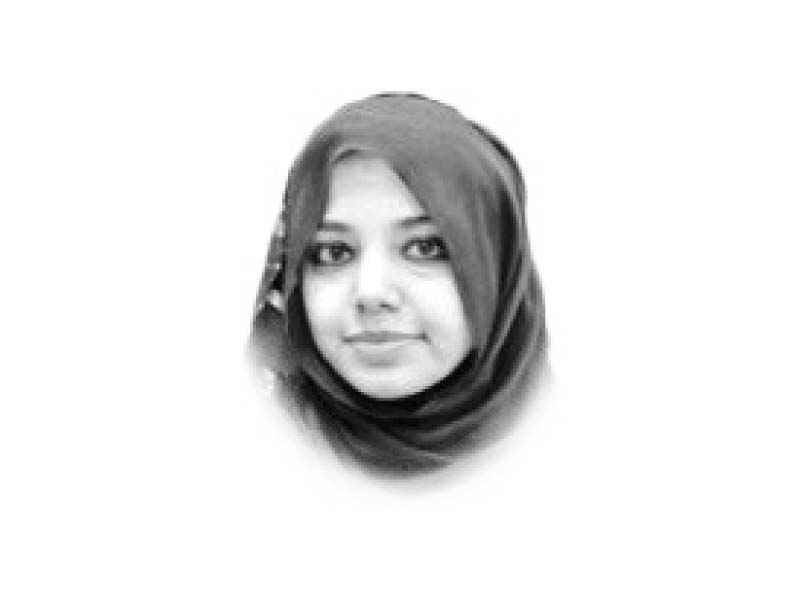
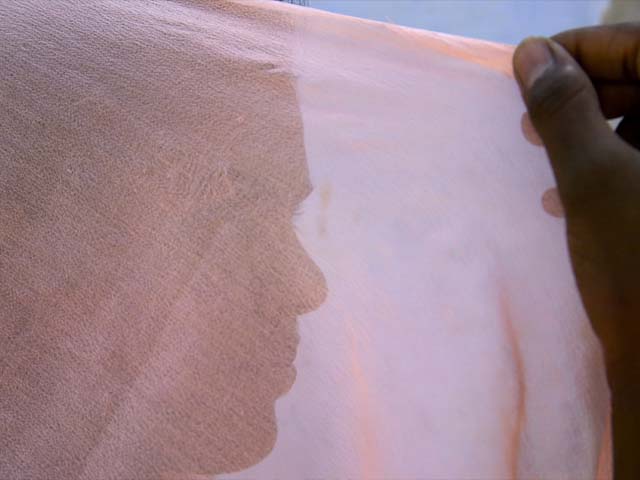
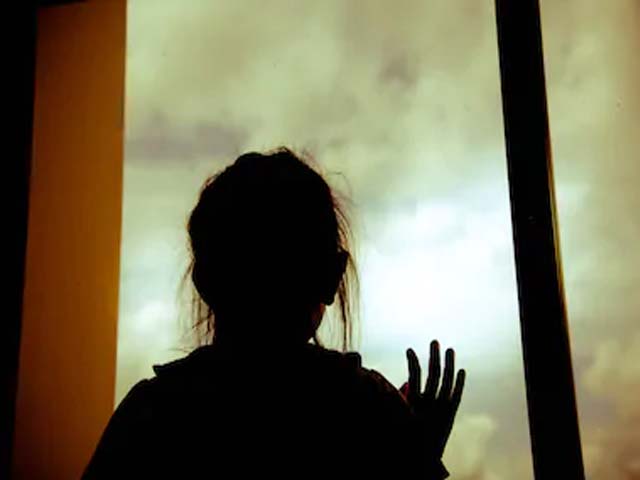
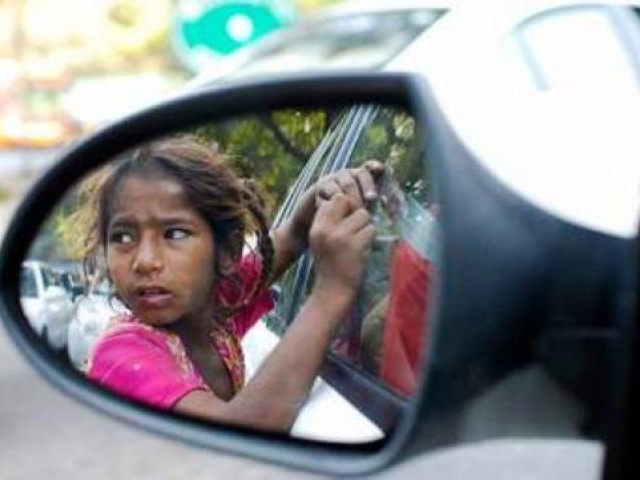
COMMENTS (1)
Comments are moderated and generally will be posted if they are on-topic and not abusive.
For more information, please see our Comments FAQ